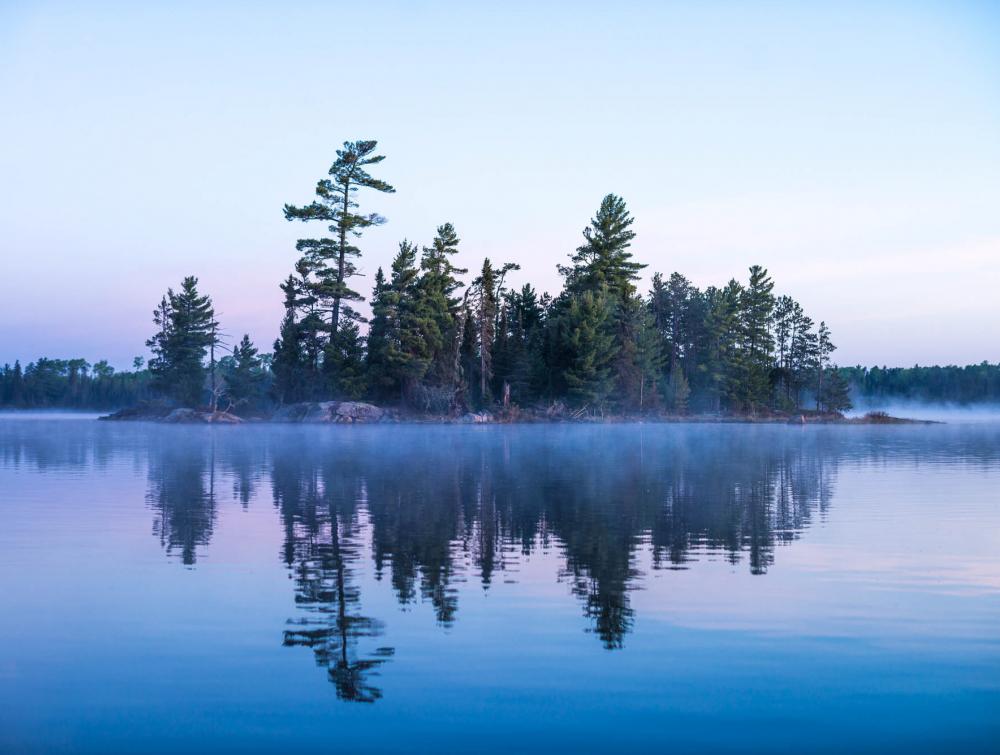Trump Administration sells out Boundary Waters Wilderness to industrial mining

Erik Fremstad
We strongly object to the cancellation of the proposed 20-year ban on mining
Statement from Chris Rackens, Senior Representative, Government Relations:
“Today’s announcement immediately threatens 234,328 acres of public national forest lands adjacent to the Boundary Waters. Since late last year the Trump Administration has moved aggressively to make public lands in the watershed of the Boundary Waters available for industrial mining activity, including unlawfully reinstating expired mineral leases. This most recent decision throws out almost two years of work to prepare an impartial, science-based environmental review and analysis of a mineral withdrawal, and flies in the face of previous decisions by the Forest Service that allowing mining in this sensitive watershed poses too great a risk.
“While the Trump Administration claims today’s decision is based on that environmental review, the review has not been completed or shared with the public. Instead, today’s announcement is a purely political backroom decision fueled by remarks by President Trump and Vice President Pence at recent rallies in Minnesota.
“Conservation in Northeastern Minnesota and other places with prized-public lands offers sustainable jobs and economic opportunity for generations to come. Indeed, a recent study by a renowned Harvard economist debunks the myth that mining in this sensitive landscape would result in job growth and economic benefits. The sulfide-ore mines that are being considered in this area threaten to contaminate the land, water and legacy of the Boundary Waters.”
The Boundary Waters is America’s most visited wilderness area. Explorers find refuge in its pristine waters and forested lands, which offer 1,200 miles of canoe routes and 18 hiking trails. The area also includes more than 1,000 lakes left by receding glaciers and hundreds of miles of streams. Strong protections for the Boundary Waters Canoe Area Wilderness, America’s most visited wilderness, are supported by the public, science and economics.
The pollution resulting from sulfide-ore copper mining would inevitably harm the water quality and ecology of these protected public lands and waterways. The local economy – which is sustained by tourism and jobs connected to this fishing, canoeing, and camping mecca – would also suffer. In an August 6 letter to the Forest Supervisor at Superior National Forest, Harvard Economist James H. Stock predicted economic harm to the region if this mining were introduced in the Superior National Forest.
Earlier this year, the Interior Department reinstated the two expired mineral leases, which date back to 1966. The decision paves the way for Twin Metals to build an industrial mining complex on the edge of the Boundary Waters Canoe Area. The Wilderness Society, Center for Biological Diversity, and the Izaak Walton League of America, represented by Earthjustice, filed a lawsuit in federal district court in Washington, D.C. challenging that decision. The week prior organizations joined nine Minnesota businesses to file a separate lawsuit to protect this cherished recreation area from mining.
TO JOIN THE OPPOSITION to this action:
Visit our Too Wild To Drill Boundary Waters page to learn more and take action. You can also find your federal representatives at www.house.gov or www.senate.gov. Call on your members of Congress to tell them you oppose the Trump Administration’s recent actions to allowing mining adjacent to the Boundary Waters Canoe Area Wilderness. Sulfide-ore mining would likely harm northeast Minnesota’s economy, which relies on paddling, hunting, fishing, hiking, and other outdoor recreation, with the result of 27,000 lost jobs and $1.4 billion lost economic activity. Tens of thousands of Americans and locally owned businesses have commented in support of protecting the Boundary Waters from toxic sulfide-ore mining.
CONTACTS:
- Alison Flint, High Profile Litigation Manager, The Wilderness Society, 303-802-1404
- Michael Reinemer, The Wilderness Society, 202-429-3949, Michael_reinemer@tws.org.
The Wilderness Society, founded in 1935, is the leading conservation organization working to protect wilderness and inspire Americans to care for our wild places. With more than one million members and supporters, The Wilderness Society has led the effort to permanently protect 109 million acres of wilderness and to ensure sound management of our shared national lands. www.wilderness.org
